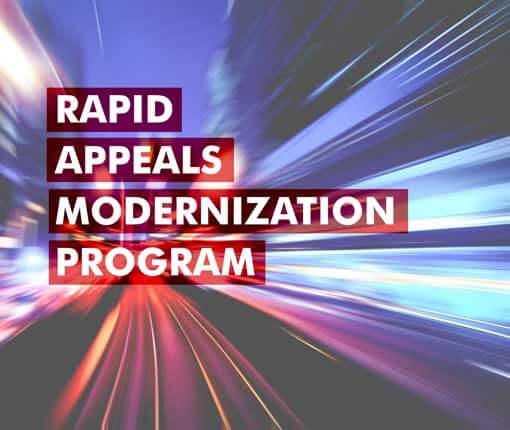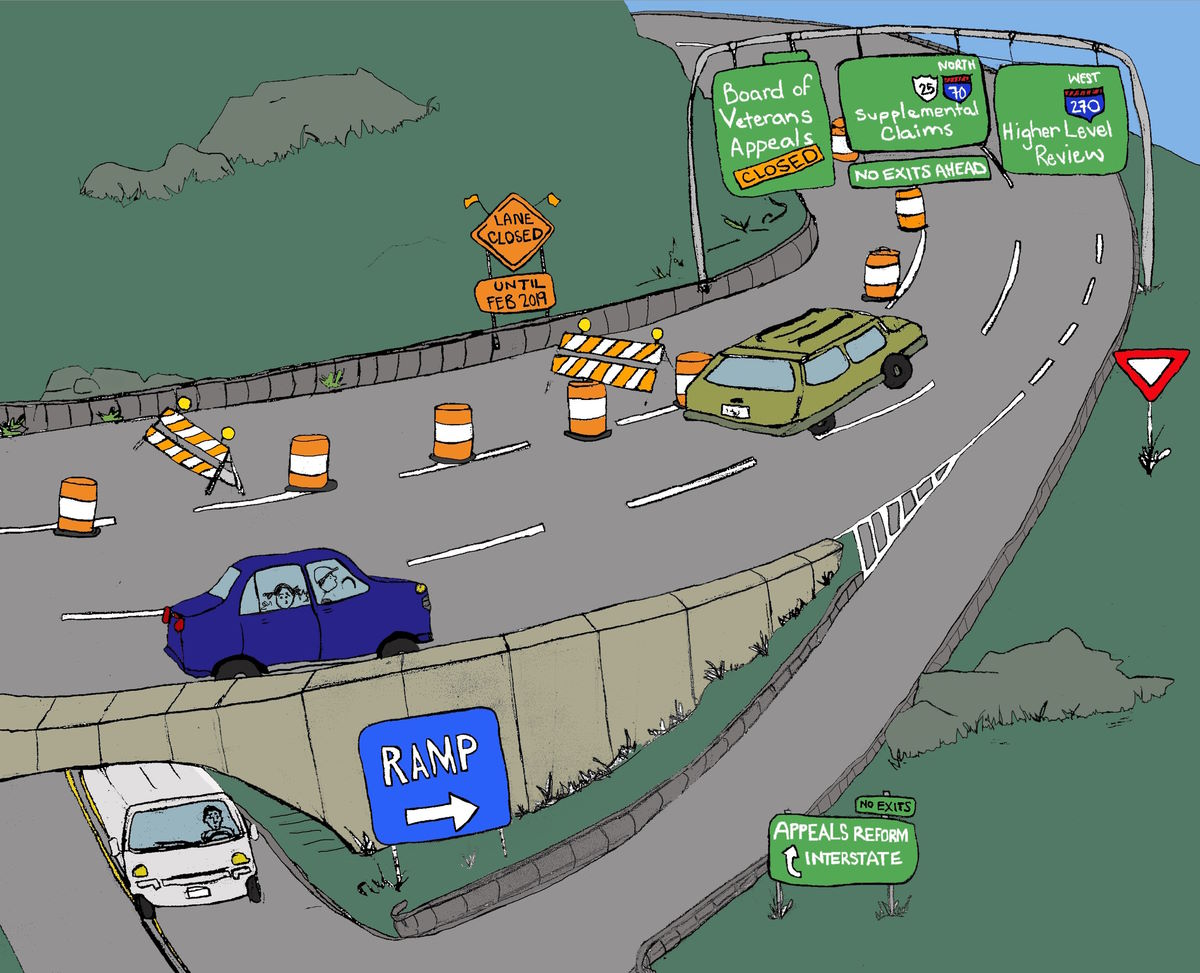RAMP: Should you participate in VA’s new Rapid Appeals Modernization Program?

CCK Law: Our Vital Role in Veterans Law
On November 2, 2017, the Department of Veterans Affairs (VA) rolled out RAMP, the first opportunity for veterans to enter the new appeals process outlined in the Veterans Appeals Improvement and Modernization Act of 2017.
Note: On February 19, 2019 the Veterans Appeals Improvement and Modernization Act (AMA) was officially implemented, thus ending the Rapid Appeals Modernization Program. The most up-to-date information on the AMA can be found on our page: Veterans’ Appeals Reform.
The Act, signed into law on August 23, 2017, will not take full effect until February 2019. But the new program – RAMP, which stands for Rapid Appeals Modernization Program – will allow veterans currently appealing their claims to participate in some, but (importantly) not all parts of the new appeals system.
After the Veterans Appeals Improvement and Modernization Act of 2017 became law, VA immediately began the 18-month implementation of the new process. The new system is intended to streamline the VA’s current appeals process (now referred to by VA as the “legacy” appeals process), which has received ample criticism for its inefficiency and excessive wait-times. The new process, which we have covered in-depth in previous posts, will allow veterans to choose from three different review lanes.
As of April 1, 2018, VA has extended invitations to opt in to RAMP to any veteran who has a pending appeal that is not at the Board of Veterans’ Appeals. As of May 14, 2018, 15,645 individuals have opted into RAMP from the legacy appeals process. Of those cases pending in RAMP, 64.6% have opted into the Higher Level Review lane, and 35.4% have opted into the Supplemental Claim lane. As of May 14, 2018, total RAMP payments are $15.5 million.

Clarifying terms
All of these new, old, and in-between systems can be easy to mix up. So let’s clarify exactly what’s what:
- Legacy appeals process: the current VA appeals process
- All veterans who have already filed appeals are participating in this process. Veterans who are about to submit an appeal (up until February 2019) will be placed in this process unless they choose to participate in RAMP.
- The new appeals process (a.k.a. the new law, the Act, the Veterans Appeals Improvement and Modernization Act of 2017): the new, three-lane appeals process that will not take full effect until February 2019 at the earliest.
- RAMP (a.k.a. Rapid Appeals Modernization Program): the in-between, optional appeals process that allows veterans filing their first appeal to participate in two out of three of the “lanes” that will make up the new appeals system
How does RAMP work?
Participation in RAMP is voluntary. But veterans who participate in RAMP will not be able to return to the legacy appeals process. In other words, you can opt in to the new appeals process but you cannot opt out.
Veterans who submitted a claim and have been denied (for the first time) by VA can choose participate in RAMP. The program allows participants to have their decisions reviewed in the Higher-Level or Supplemental Claim review lanes outlined in the law.
The Higher-Level review lane allows a higher-up VA official to review and potentially overturn previous decisions based on a difference of opinion, or return it for correction. But veterans cannot submit new evidence to be reviewed.
The Supplemental Claim Lane allows veterans to submit new evidence in support of their claim. This is the only lane in which VA has a duty to assist veterans in finding or obtaining evidence.
Veterans participating in RAMP will NOT be able to use the third lane in the new appeals process, meaning they cannot submit their claims directly to the Board of Veterans Appeals (The Board or BVA).
IMPORTANT: If a veteran’s claim is again denied during their participation in RAMP (by the Higher-Level review or Supplemental Claim lane), they will only be able to appeal to the Board of Veterans’ Appeals after February 2019, once the new appeals process is in full effect.
Should I participate in RAMP?
According to VA, veterans can expect to receive a review of VA’s initial decision on their claim faster in RAMP than in the legacy appeals process.
However, veterans should fully consider that participating in RAMP means:
- not being able to appeal to the Board until at least February 2019.
- not being able to take their claim directly to the Board of Veterans Appeals.
- never going back to the legacy appeals process.
About the Author
Share this Post
